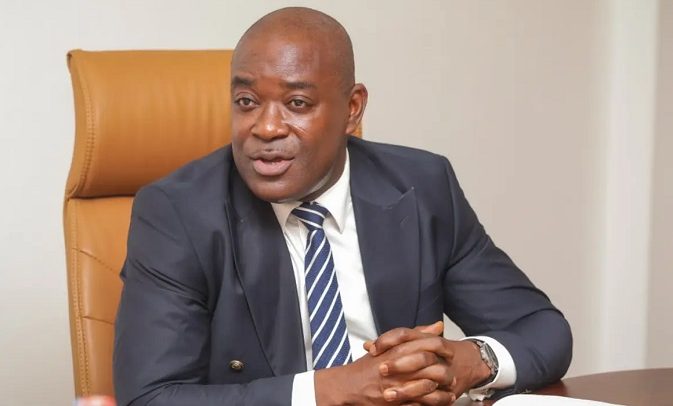
By Elizabeth Punsu, Kumasi
Government is positioning the country as the regional hub for Electric Vehicle (EV) manufacturing in West Africa, according to the Minister for Energy and Green Transition, John Abdulai Jinapor.
Speaking at the Kwame Nkrumah University of Science and Technology (KNUST) and China’s Hubei University of Automotive Technology International Joint Research Centre’s launch on behalf of the minister, Seth A. Mahu, Director of Renewable Energy and Green Transition at the ministry, said the collaboration marks a significant step in building the intellectual infrastructure required to drive Ghana’s electric mobility agenda.
“This centre will advance research in battery storage, vehicle design and grid integration – ensuring that our local knowledge ecosystem keeps pace with global trends,” he stated.
He noted that his ministry, in collaboration with the Energy Commission, is spearheading efforts at expanding the national EV charging network by using solar-grid hybrid models to ensure both resilience and sustainability.
“With Ghana’s abundant solar potential, our future charging infrastructure will not just be functional – it will be clean, decentralised and smart,” he said.
He revealed that government plans to deploy at least 100 rapid-charging stations nationwide within the next five years. This, he said, will complement the growing network of home, level 1 and level 2 chargers already in use across the country.
To attract investment and stimulate innovation within the EV sector, Mr. Jinapor announced that a range of policy incentives are being introduced. These include import duty waivers for commercial 100% electric vehicles, tax breaks for component manufacturers and support for green industrial zones.
“We are creating the right policy environment for both local and international investors. Incentives for EV importers, fiscal support for component manufacturing and enabling infrastructure are all part of our roadmap to attract capital and expertise,” he said.
He further affirmed government’s commitment to supporting local entrepreneurs across the EV value chain – from battery recycling and component assembly to full-scale vehicle production. Citing China’s rapid emergence as the global leader in EV manufacturing, he noted that while Ghana could learn from that model it must chart a path anchored in strategic partnerships and local strengths.
“Accelerating the transition from semi-knocked down (SKD) to completely knocked down (CKD) assembly is vital to increasing local content and creating sustainable jobs,” he emphasised.
Beyond manufacturing, the minister highlighted government’s efforts to resolve energy sector challenges to support the EV transition. Over the next five years, more than 1,400 megawatts (MW) of renewable energy capacity will expectedly be added to the national grid. This expansion is backed by over US$2billion in investments across the renewable energy and green transition value chain.
As part of the broader strategy, government will establish a Renewable Energy Authority and a Renewable Energy Investment Fund to provide financial and technical support to emerging markets – including electric mobility.
Mr. Jinapor called on Chinese partners to invest in Ghana’s EV ecosystem, highlighting opportunities in technology transfer, joint ventures and training.
“This forum must be a bridge between Ghana and China – between ideas and implementation, ambition and achievement. In five years, we should be able to tell bold stories of growth and transformation in the EV space,” he said.
He also challenged KNUST and Hubei University to ensure the new partnership delivers tangible outcomes in innovation, skills development and EV production lines that will “redefine the future of mobility in Ghana and Africa”.
The post Gov’t eyes West African leadership in EV manufacturing appeared first on The Business & Financial Times.
Read Full Story















Facebook
Twitter
Pinterest
Instagram
Google+
YouTube
LinkedIn
RSS